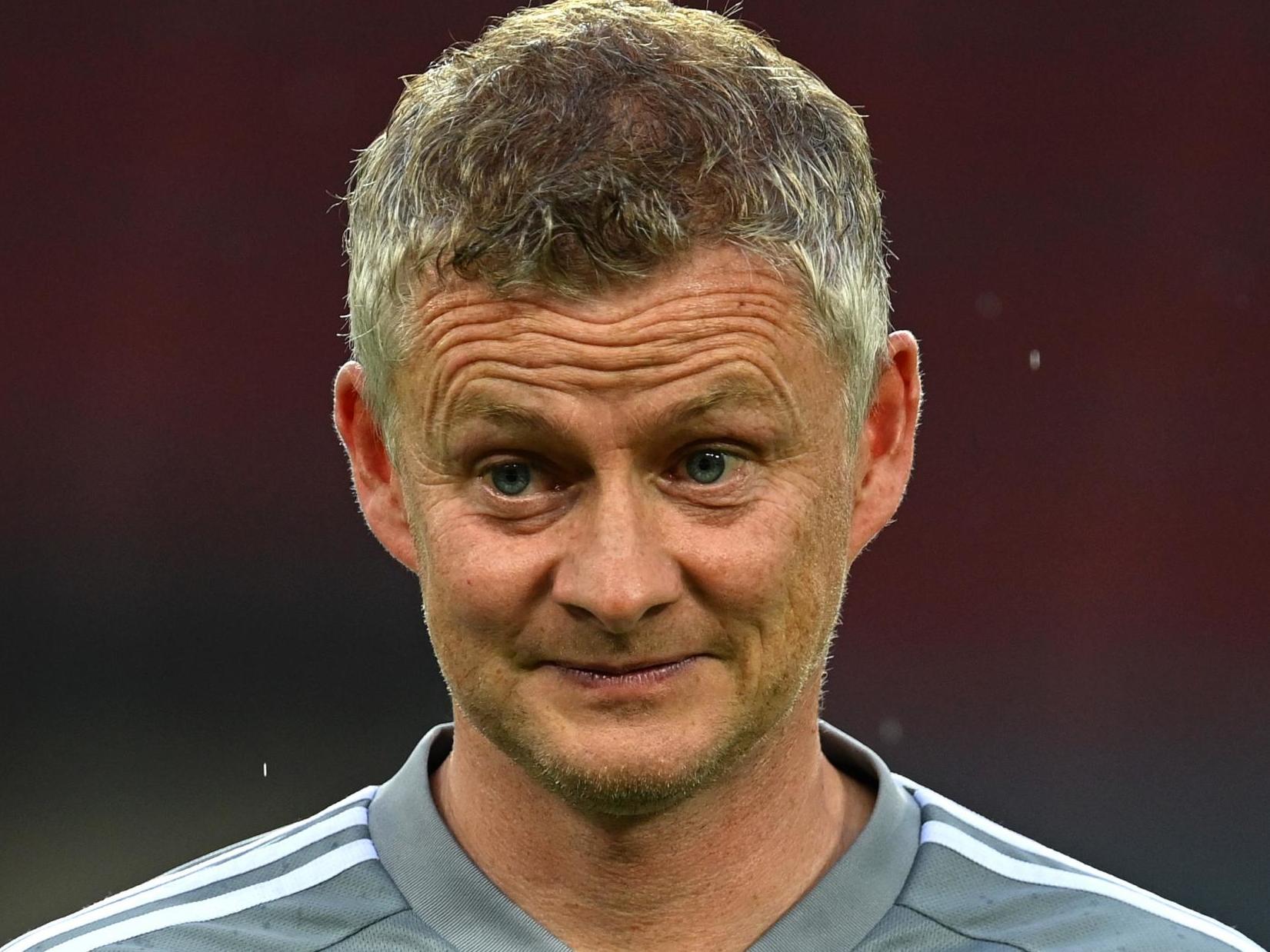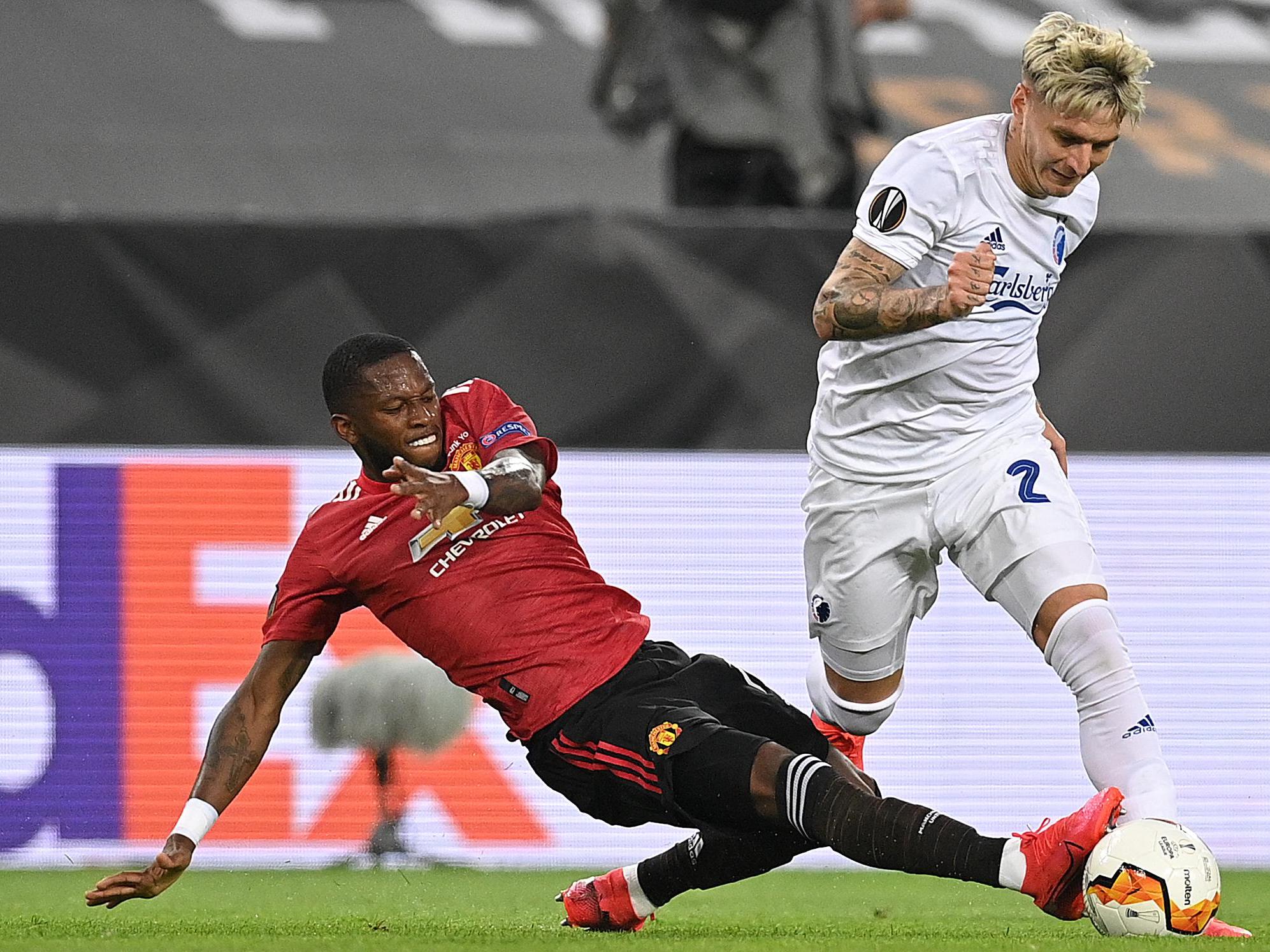Manchester United vs Copenhagen result: Five things we learned as Red Devils reach semis after 21st penalty this season
United hoping to win a second title in the competition in four seasons

Your support helps us to tell the story
From reproductive rights to climate change to Big Tech, The Independent is on the ground when the story is developing. Whether it's investigating the financials of Elon Musk's pro-Trump PAC or producing our latest documentary, 'The A Word', which shines a light on the American women fighting for reproductive rights, we know how important it is to parse out the facts from the messaging.
At such a critical moment in US history, we need reporters on the ground. Your donation allows us to keep sending journalists to speak to both sides of the story.
The Independent is trusted by Americans across the entire political spectrum. And unlike many other quality news outlets, we choose not to lock Americans out of our reporting and analysis with paywalls. We believe quality journalism should be available to everyone, paid for by those who can afford it.
Your support makes all the difference.Manchester United beat FC Copenhagen 1-0 after extra time in the Europa League quarter-finals.
Both teams went close in the first half, Mohamed Daramy and Mason Greenwood being denied by a poor touch and the offside flag respectively.
After the break the match really opened up, with United dominating for a stretch during which they hit the woodwork twice – and Copenhagen threatening more than once on the break.
It took until extra time for a goal to arrive though, Bruno Fernandes scoring from the penalty spot after Anthony Martial was fouled.
Here are five things we learned from the game in Germany.
Defensive errors
Against a team with a better attack, United would have been in real trouble by half-time.
Aaron Wan-Bissaka was the chief culprit, but far from the only one, as United continually gifted chances to attack or shoot from inside their own defensive third.
Mohamed Daramy should have scored at least one, while a handful of last-ditch blocks and headers from Eric Bailly and Brandon Williams prevented Copenhagen having a tap-in more than once.
The best opening of the second half also came for Copenhagen, Rasmus Falk’s skill teeing up a shooting chance which was closed out by Bailly and Aaron Wan-Bissaka in turn.
United won’t be able to defend in this slack fashion against the likes of Wolves, let alone Inter Milan, if they want to win the competition.
Boss calls

Ole Gunnar Solskjaer made two alterations to what might be termed his strongest available outfield lineup for this game, keeping Fred and Eric Bailly in place over Nemanja Matic and Victor Lindelof.
Sergio Romero continued in goal too, with this having been his competition for the season, as such.
But when it came to in-game changes, Solskjaer looked bereft of ideas once more.
His first subs—and the only ones he made in 90 minutes in tough conditions—simply changed the aforementioned quartet, making it a first-choice 10 outfielders, but certainly not affecting the level of creativity with a fresh centre-back and holding midfielder.
The question has to be asked of whether the manager doesn’t have enough faith in those alternatives at his disposal, or, if that’s not the case, why there was no alternative strategy: no formation alteration, no different personnel, no real aid to his team to find the breakthrough.
Greenwood in and out
Mason Greenwood had a spectacular few weeks in the Premier League after the restart, essentially winning his spot in Ole Gunnar Solskjaer’s XI thanks to some fantastic goals and busy performances.
Of late, though, he has shown the inconsistencies of youth, perhaps: struggling to stay involved in the match throughout the 90 minutes and needing to be directed by his manager on the sidelines for his runs off the ball.
But even so, when he did find the ball he remained a threat.
A right-footed strike found the bottom corner, only to be ruled out for offside, before a left-footed hit struck the post.
But beyond that his impact on the game was limited for long stretches, one of the factors he’ll look to work on in 2020/21 and beyond.
Shop window

Copenhagen’s entire business model is built on giving underrated players with clear qualities a stage to perform on, particularly in Europe.
At least a few of those impressed here, with Daramy, Falk, goalkeeper Karl-Johan Johnsson and ex-United right-back Guillermo Varela all noteworthy—but none more so than centre-back Victor Nelsson.
The 21-year-old Dane only joined last year from Nordsjaelland, but has been one of the first names on the team sheet all year and made his way into the national team squads for the first time, too.
Here he was phenomenal: good reading of the game, aerially strong and then producing a monstrous, headline-stealing, last-minute tackle on Anthony Martial to deny the forward a wondergoal winner.
Semis and silverware
Inter Milan are through to the last four also, but it’s the winners of Wolves and Sevilla who will be the next challenge for United.
On the evidence of this match, there’s no guarantee that United’s better league standing means they’ll progress against their Premier League rivals, let alone an in-form Sevilla.
A long season hasn’t yielded silverware for United, despite this now set to be their third semi-final of the campaign, and a third-place finish alone cannot be seen as success for the Red Devils.
It shouldn’t be seen that they were fortunate here – Johnsson made at least three top-class saves while the woodwork was struck twice – but the fact they weren’t clinical, and conceded so many chances at the other end, is a pair of weaknesses which can cost dearly at the highest level, against the best sides.
Another step forward taken, but a much bigger one will be required if Solskjaer’s team are to end 19/20 lifting a trophy.
Join our commenting forum
Join thought-provoking conversations, follow other Independent readers and see their replies
Comments